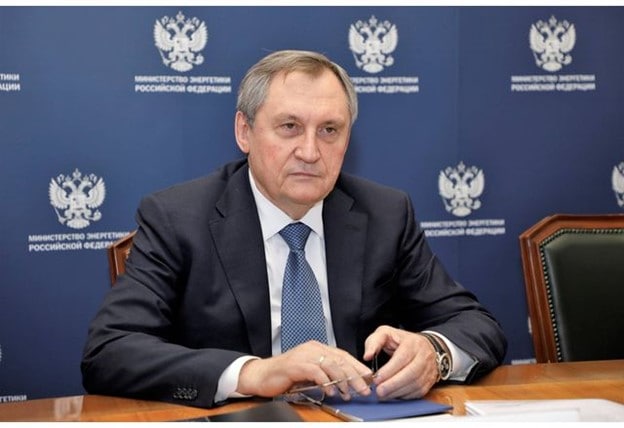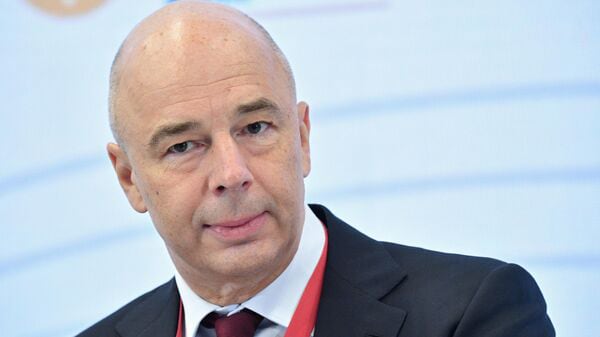Russian officials expect a temporary downturn in receipts from hydrocarbon exports. Energy Minister Nikolai Shulginov told the State Duma:
"For 2023, we expect oil production levels to be slightly lower, including due to a voluntary reduction in oil production on part of the producers. The level of gas production will continue to decline, both due to the abandonment of the European market and terms of the 'pivot' of energy flows to the East."

Energy Minister Nikolai Shulginov (Source: Zonanews.bg)
The Russian Finance Ministry reported on the discount at which Russian "Urals" grade oil is being traded as compared to "Brent" oil. Between February 15 to March 14, the average per barrel price of Urals grade oil was 50.8 USD. This represented a discount of 38.9% or 32.3 USD per barrel.
Russia is hopeful that a number of factors will contribute to reversing the trend. The Saudis and other oil exporters will not go along with any price ceiling and have already warned that they would not sell to any country that imposed a ceiling and would, additionally, decrease production.
"It is logical that oil-exporting countries perceive the attempt to curb the sales price for Russia as a threat to themselves in the future as well. Accordingly, Russia's success in circumventing the imposed restrictions is also a success for OPEC+ member-states," argued Vitaly Gromadin, an asset manager at BCS World Investments.
He added that Russia is also hopeful that the lifting of COVID-19 restrictions will spur demand for hydrocarbons, for example, aviation fuel: "The lifting of COVID-19 restrictions in China will add 1.2 million bpd to global aviation fuel demand, which should reach 94% of fourth quarter 2019 levels by the year's-end."
Finally, Russia expects that the Saudis and other OPEC+ members would want to preserve oil prices at 90 USD per barrel or higher and will curb production to force prices upwards. As a result, Russian Urals grade oil prices will be pushed upwards as well, and export revenues with go up along with them.[1]
Despite the optimism that the situation with hydrocarbon exports would reverse itself in the future, in the interim, a shortfall has been created, and the government needs to cover the budget gap. Moreover, the government has pledged improvements in housing and infrastructure. So coincidentally or not, Vladimir Putin spoke to the Congress of the Russian Union of Industrialists and Entrepreneurs [hereafter – RSPP] to call upon Russia's captains of industry to ante up.
SUPPORT OUR WORK


Putin addresses the RSPP congress (Source: 19rusinfo.ru)
After rattling off figures designed to prove that Western hopes to bankrupt Russia had been dashed, Putin sketched a model of patriotic business that would help the government meet the infrastructure and housing needs.
"Today, we are also seeing examples of great attitude towards this effort, towards the lofty mission of the businesspeople who care for the conditions in which their companies, their people, and their specialists are working. They are using their entrepreneurial talent – and this is a talent – not only to derive profit and engage in overconsumption but also for the public good. Instead of working offshore and withdrawing the money made here for what can hardly be called basic necessities, they are launching special programs to support their employees and their families. Along with the regional authorities, they are channeling funds into building roads, hospitals, sports and cultural facilities. In a word, they are making life better for all the people around them...
"As I have said earlier, we need businesses that care about their staff and employees and create comfortable working conditions for them, that invest in their employees' knowledge and skills, take care of their families and children, and understand that family welfare is the foundation of demographic development, higher birth rates, and longer life expectancy. Ultimately, this helps cut corporate costs, to put it in primitive terms, improves the operating environment, and leads to bigger and better results.
"Responsible businesses do not disassociate themselves from the locality or the region where they are based. They take part in their development and, in conjunction with the state, invest in schools, universities, the education system, public health, and all areas that are critically important and sensitive for the people, and support social programs as well.
"Of course, business is first and foremost about business, not social institutions, which we are all well aware of. But you know what I am talking about as well."
Putin strongly hinted that social contributions by Russian business would henceforth be noted by both the public and the government.
"I propose establishing a special award for the most trustworthy domestic companies and to present it to the first winners during the next RSPP congress.
"In addition, I propose considering the annual publication of non-financial reporting by major enterprises, which will focus on what a particular company has done for society, for a particular village, town, region, or the country. I am aware of the fact that the vast majority, almost all companies, have such social programs, but they are known to a limited number of people. Let all of society learn about them. This will benefit everyone and will be a good example for everyone."[2]
If Putin spoke in generalities, Russian Minister of Finance Anton Siluanov, who also appeared at the RSPP congress, went into specifics. He said that businesses will have to donate about 300 billion USD to the treasury as early as 2023 as a token of their patriotism. The Ministry of Finance expected the amount to be transferred to the budget in the form of a one-time payment that would, presumably, be deducted from the excessive profits that business acquired during the period of 2021-2022.
Like Putin, Siluanov also sought to portray the tax as enlightened self-interest on the part of business. "These assets will be allocated for construction of infrastructure, roads, better education, healthcare, and salaries for state employees. All this money will eventually return to business," assured Siluanov. "No money should be spared for that. We should, I believe, gladly accept this decision and move forward," said the minister. According to him, [the government] would welcome proposals by entrepreneurs to increase the payment amount.[3]

Finance Minister Anton Siluanov (Source: Ria.ru)
This contribution by business may serve as a stopgap measure, but as Igor Nikolayev, Head Researcher at the Institute of Economics of the Russian Academy of Sciences warned, it pales in comparison to the deficit that Russia is accumulating. "One possible source has already been mentioned, i.e., additional contributions from business. But this, provided it does happen, won't, naturally, solve the problem of the budget deficit. One or two hundred billion rubles could be raised in this way but our estimated deficit is already in the trillions."[4]
[1] Ng.ru, March 15, 2023.
[2] Kremlin.ru, March 16, 2023.
[3] Kommersant.ru, March 16, 2023.
[4] See MEMRI Special Dispatch No. 10500, Leading Russian Economist Nikolayev: Russia Burning Through Its Finances At Alarming Rate, May Soon Have To Take Money From Citizens, February 21, 2023.




